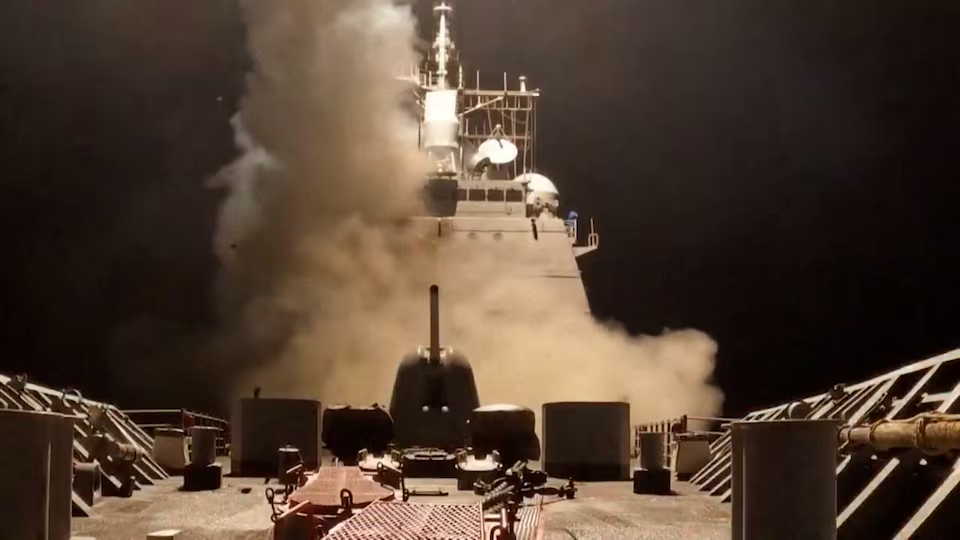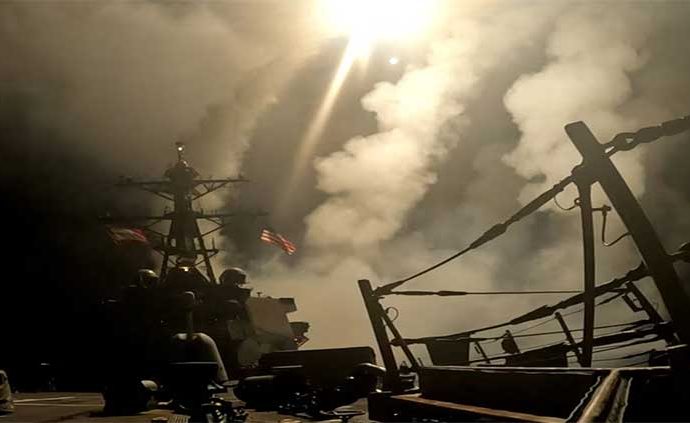WASHINGTON/ADEN, Yemen (Reuters) — US President Donald Trump started large-scale military strikes against Yemen’s Iran-aligned Houthis on Saturday in response to the group’s attacks on Red Sea commerce, killing at least 24 people at the start of a campaign that is anticipated to last several days.
Trump also reminded Iran, the Houthis’ primary supporter, that it must immediately cease backing for the organization. He warned that if Iran endangered the US, “America will hold you fully accountable, and we will not be nice about it!”
The unfolding attacks, which one US source told Reuters may go for weeks, are the largest US military action in the Middle East since Trump took office in January. It occurred as the US increased sanctions pressure on Iran while attempting to bring it to the bargaining table over its nuclear program.
“To all Houthi terrorists, your time is up, and your attacks must end now. If they don’t, HELL WILL RAIN ON YOU LIKE YOU’VE NEVER SEEN BEFORE!” Trump posted on his Truth Social platform.
According to the Houthi-run health ministry, US strikes on Yemen’s capital, Sanaa, killed at least 13 people and injured nine.
A US strike on the northern province of Saada killed at least 11 people, including four children and one mother, and injured 14, according to Houthi-run Al-Masirah TV.
In this screengrab taken from a handout video issued on March 15, 2025, a ship launches missiles at an unidentified site after US President Donald Trump initiated military strikes on Yemen’s Iran-aligned Houthis on Saturday in response to the group’s assaults on Red Sea shipping.
The Houthis’ political bureau referred to the attacks as a “war crime.”
“Our Yemeni armed forces are fully prepared to respond to escalation with escalation,” the statement read.
Residents in Sanaa said that the attacks targeted a structure in a Houthi stronghold.
“The blasts were powerful, shaking the area like an earthquake. “They terrified our women and children,” one resident, Abdullah Yahia, told Reuters.
Another strike on a power station in Dahyan, Saada, resulted in a power outage, Al-Masirah TV reported early Sunday. Dahyan is where Abdul Malik al-Houthi, the Houthis’ enigmatic commander, frequently meets with guests.
Since November 2023, the Houthis, an armed movement that has taken control of most of Yemen over the last decade, have launched scores of attacks on ships off its coast, disrupting global commerce and forcing the US military to launch a costly campaign to intercept missiles and drones that have depleted US air defense stocks.

A Pentagon spokeswoman stated that the Houthis had assaulted US warships 174 times and commercial boats 145 times since 2023. The Houthis claim the assaults are in sympathy with Palestinians in response to Israel’s conflict with Hamas in Gaza.
Israel has seriously crippled Iran’s other allies, Hamas and Hezbollah in Lebanon, since the beginning of the Gaza conflict. In December, insurgents deposed Syrian President Bashar al-Assad, who was closely associated with Iran.
However, Yemen’s Houthis have remained resilient and frequently on the offensive, sinking two ships, capturing another, and murdering at least four seamen in an onslaught that interrupted global trade, forcing companies to reroute to longer and more expensive voyages across southern Africa.
The US government of then-President Joe Biden attempted to reduce the Houthis’ capacity to strike vessels off its coast, but its operations were limited.
US officials, speaking on the condition of anonymity, said Trump has ordered a more robust approach.


